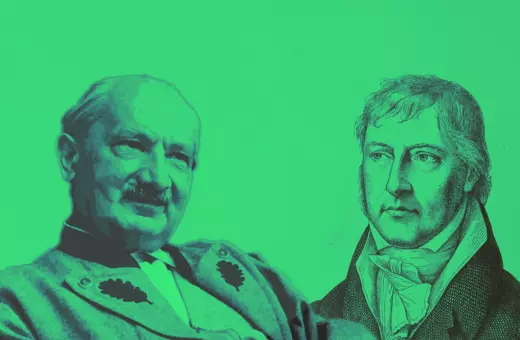Leading analytic philosophers, like Timothy Williamson and Derek Parfit, argue that common sense is a way of testing the truth of philosophical theories. If philosophy seems to contradict what we take to be commonsense knowledge, they argue, so much the worse for philosophy. But common sense can be wildly misleading, merely reflecting the prejudices of a particular culture or era. What was once considered common sense knowledge is today known to be false. Instead of relying on common sense, philosophy should consider using scientific knowledge as a starting point and test for its claims, argues Marcus Arvan.
In Doing Philosophy: From Common Curiosity to Logical Reasoning, Timothy Williamson contends that philosophy starts from commonsense, and that commonsense can serve as a ‘check on the philosopher’s provisional conclusions’. As an example of the latter, Williamson contends that our commonsense knowledge that people often eat breakfast after getting up in the morning refutes philosophical arguments that time is unreal. Williamson is far from alone in thinking along these lines.
It is commonplace in philosophy to test arguments and theories by reference to commonsense. For example, Derek Parfit argues influentially against the subjectivity of value by inviting us to imagine someone who wants to experience future agony. Parfit notes that if subjectivism were true, then such a person would have decisive reasons to pursue agony. But, Parfit says, ‘[t]hat is hard to believe’, which he offers as evidence that subjectivism is false. Another common philosophical methodology, reflective equilibrium, holds that the role of philosophy is to make commonsense judgements about principles and concrete cases more coherent, thus grounding philosophical theory in what most people already believe.
But there are good reasons to doubt whether commonsense should play these roles in philosophy.
___
Appeals to common sense in philosophy are a demonstrably unreliable method for distinguishing genuine knowledge (and truth) from mere belief (and falsehood).
___
First, as Williamson recognizes, there is an enormous difference between commonsense knowledge—that is, things that people genuinely know—from commonsense belief, which is what people merely think they know. The problem here, of course, is that without some method for reliably telling these two things apart, philosophy runs the risk of basing arguments and theories on false beliefs that people think they know to be true.
Second, appeals to commonsense in philosophy are a demonstrably unreliable method for distinguishing genuine knowledge (and truth) from mere belief (and falsehood). How do I know this? As Jason Brennan points out, philosophers disagree wildly over philosophical issues. Take any philosophical debate you like—consciousness, free will, morality, epistemology, justice, etc.—you will find a wide plurality of mutually incompatible arguments and theories. Because mutually incompatible claims cannot be true, it follows that virtually all philosophical arguments and theories are unsound, having false conclusions.
___
Common sense can be regressive, wrongly presupposing the truth of prevailing prejudices.
___
Third, better methods—specifically, scientific methods—have a long track record of refuting commonsense beliefs that people once (falsely) took to be knowledge. For example, it was once taken for granted, as commonsense knowledge, that the Earth is flat and stationary—yet we now know from scientific inquiry that the Earth is spherical and revolves around the Sun. The history of science is full of examples like this. Darwin’s theory of evolution, Einstein’s theory of relativity, quantum mechanics, etc.—all refuted commonsense beliefs about the world that people thought to be knowledge.





















Join the conversation